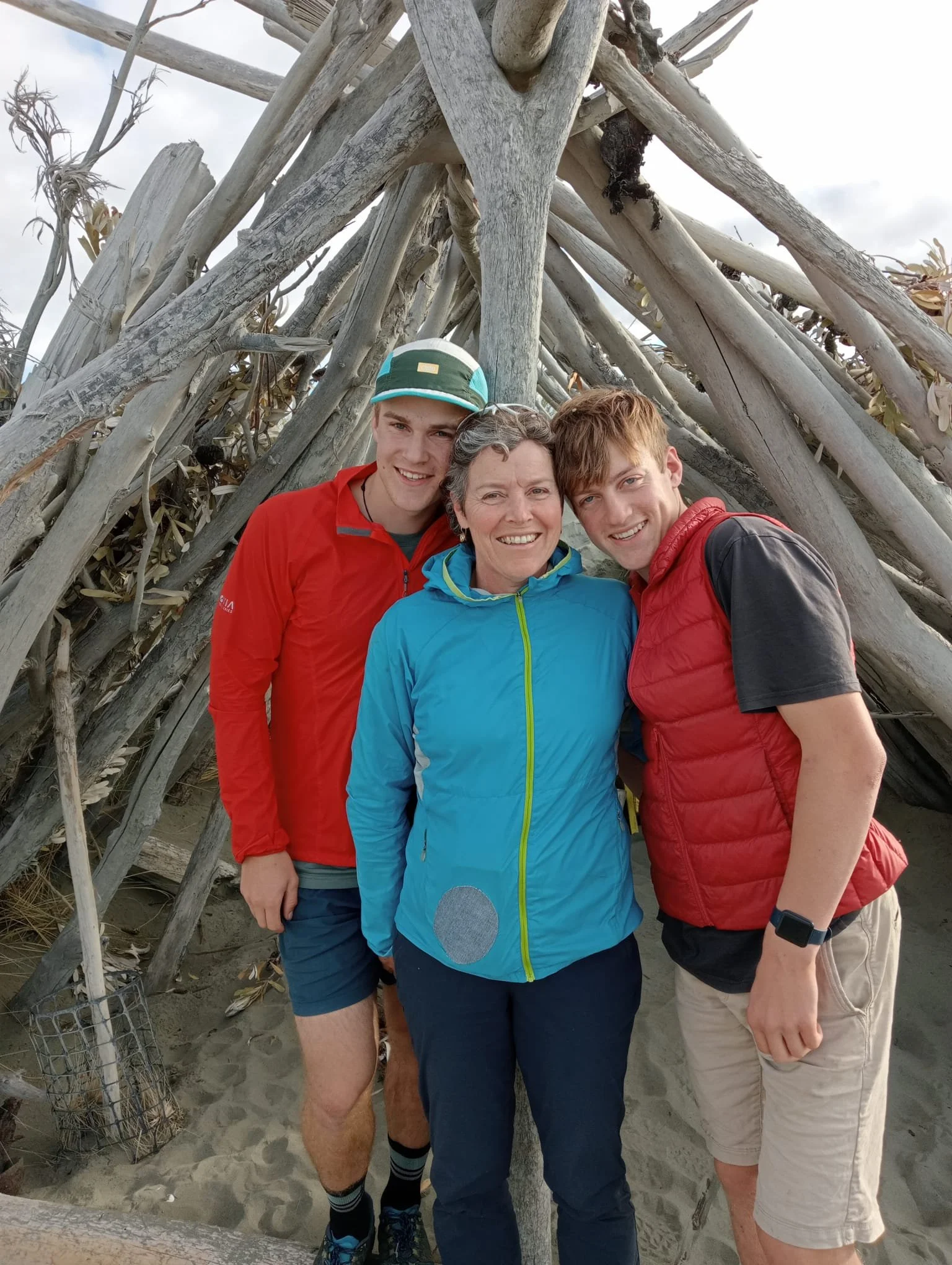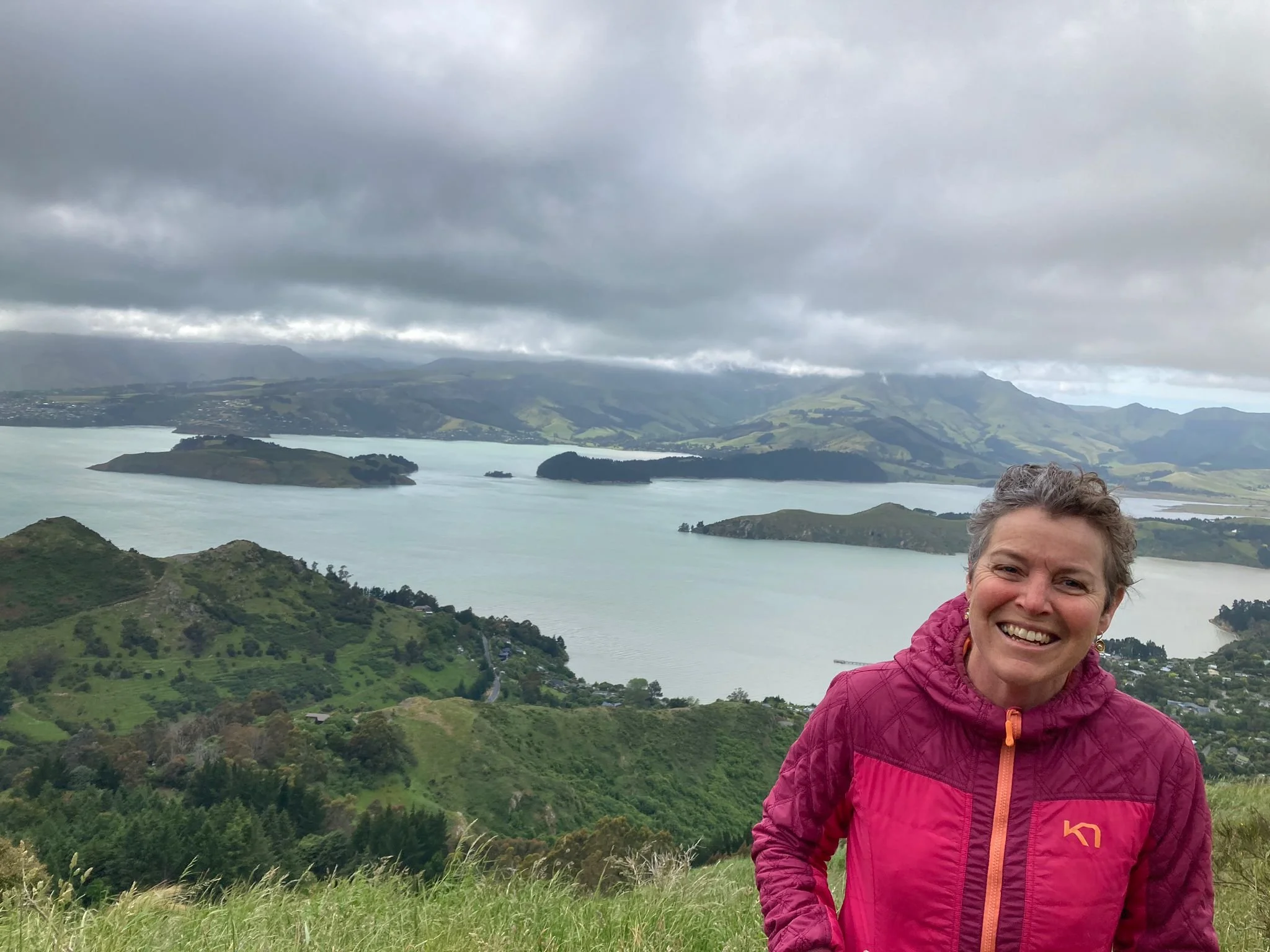A Learning Experience
By Jacqui Inder
Introduction
Kia ora, I’m Jacqui Inder from Christchurch. I’m 52 years old and was an active, outdoors-loving person before my diagnosis – biking, skiing, and tramping with my partner and our two teenage boys.
One of my passions is vegetable gardening, and before everything changed, I worked as a sonographer, specialising in musculoskeletal ultrasound. Life was busy, fulfilling, and full of movement.
Diagnosis
In early August 2022, I began experiencing coordination issues and a wave of anxiety that didn’t feel normal. Then, on the 10th of August, my world changed.
I had taken a trip up to Porters Ski Field with a friend, but something didn’t feel right. I struggled to zip up my jacket – a small task that suddenly felt impossible. Within five minutes, I had completely lost the ability to speak. All that came out were garbled sounds. It was frightening and disorienting.
That day I was taken for a CT scan, which revealed a mass in my brain. An MRI confirmed it. Ten days later, I had surgery and a biopsy, which diagnosed a Grade 4 glioblastoma in the parietal lobe.
Treatment Journey
Treatment was incredibly tough. In the moment, I didn’t quite grasp just how hard it was – but looking back, I realise I was miserable.
Chemotherapy went on for around eight months, and I felt sick and weak most of the time. Radiation treatment caused tender, sunburned skin, and I lost hair on one side of my head.
Through it all, my partner was incredible, and my teenage sons showed such maturity and care. I was also fortunate to discover Support Crew, a platform that allowed me to connect with friends and family, post updates, and request help. The response from my community was heartwarming – meals, rides, support for my kids, and visits when I couldn’t get out of the house. I truly felt held by the people around me.
Living with a Brain Tumour
Life after diagnosis has brought a lot of changes. I still struggle with speech issues, especially when I’m tired, and my right hand lacks coordination. I also experience fatigue, poor concentration, noise sensitivity, balance problems, and sensory overload in busy or stimulating environments.
Even though I’ve never had a seizure, I’m unable to drive because of the anti-seizure medications I take. These limitations have meant that my partner carries a much bigger load with our family, and my sons have stepped up in so many ways.
Socialising in groups is difficult now, so I mostly spend time one-on-one or in smaller settings. It has actually brought me closer to my parents and siblings.
I’ve had to step away from my career. The unpredictability of my energy and cognitive challenges makes it difficult to be a reliable employee, or even manage getting to a workplace consistently.
Support from Brain Tumour Support NZ
While I continue to walk this path, I’m so grateful for the community around me. Knowing others are going through something similar and sharing their stories helps me feel less alone.
Final Thoughts: A New Way of Seeing
This journey has brought pain and challenge, yes – but also growth, connection, and insight.
I’ve learned to accept love and support, to express gratitude, and to stop judging myself and others. Though I may look healthy on the outside, the internal challenges I face every day are significant. Learning to be kind to myself, and to accept what is, has been a huge part of my healing.
Coming from a background with a solid awareness of health, I’ve still learned so much more about nutrition, lifestyle, and the mind-body connection. The conventional prognosis for glioblastoma can be confronting, but along the way I’ve met many people who have defied the odds. Their courage and resilience are my inspiration.
I’m doing everything I can to support my health, while walking the fine line between optimism and reality – and holding onto hope, every single day.



